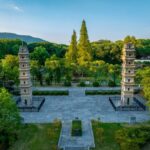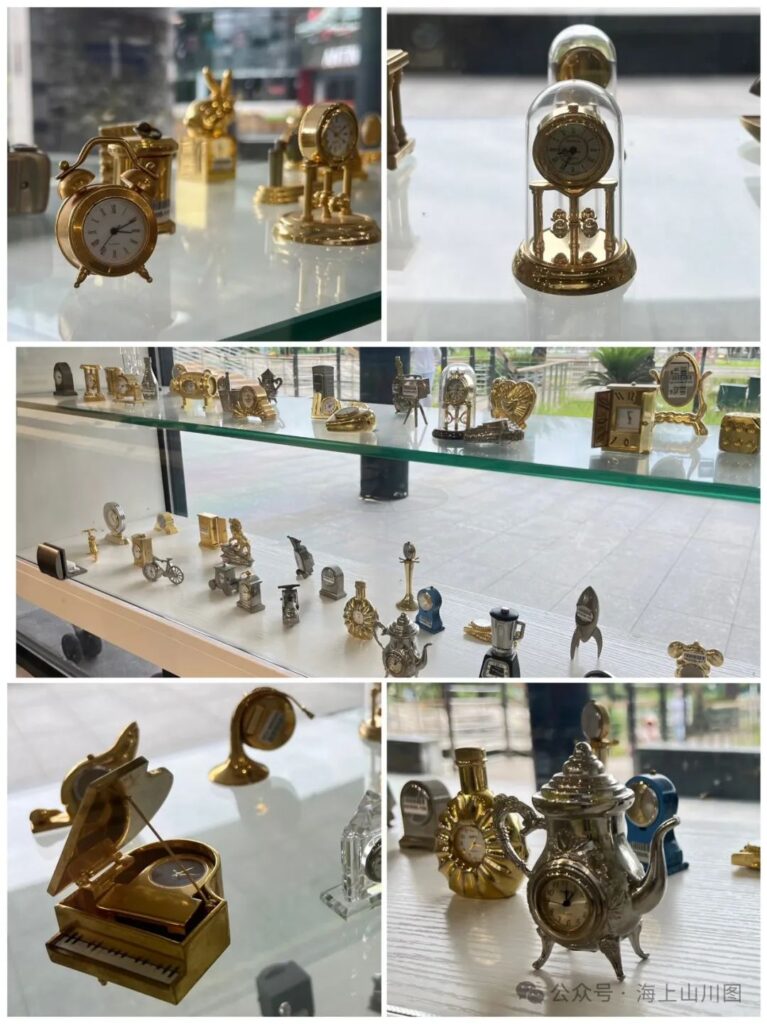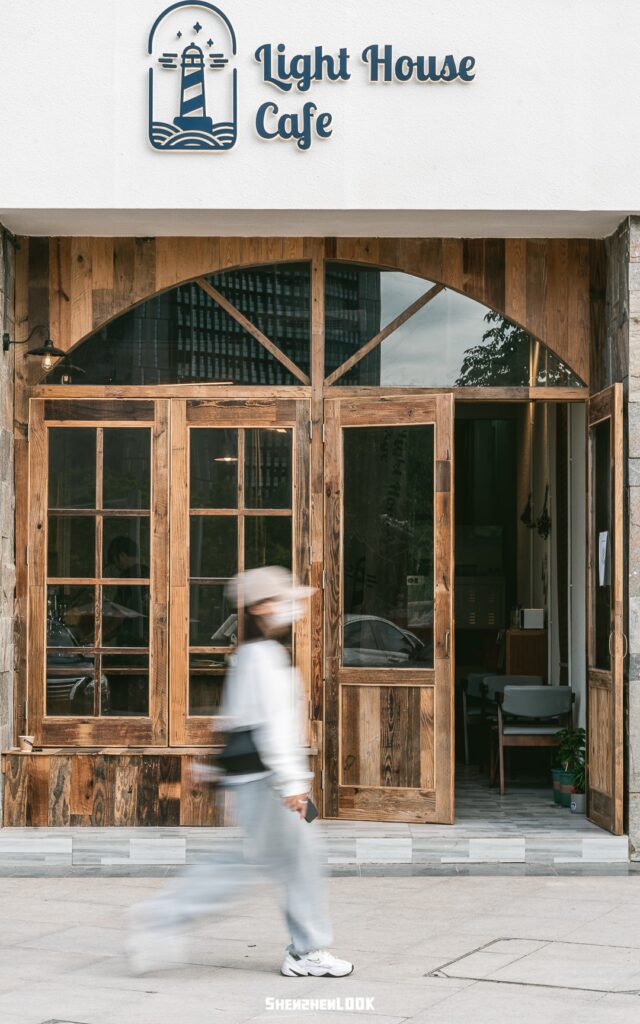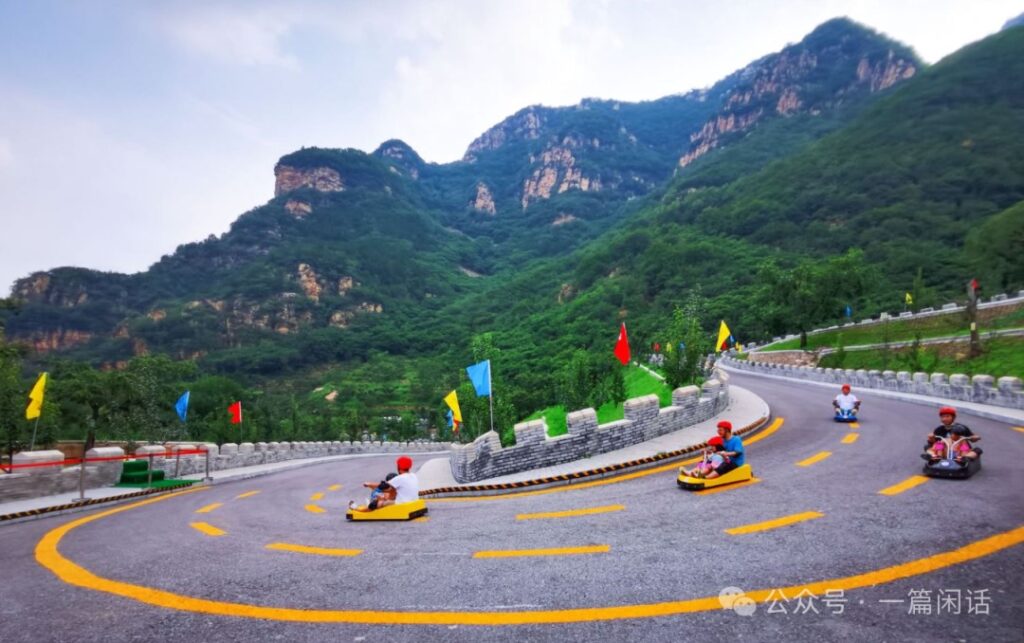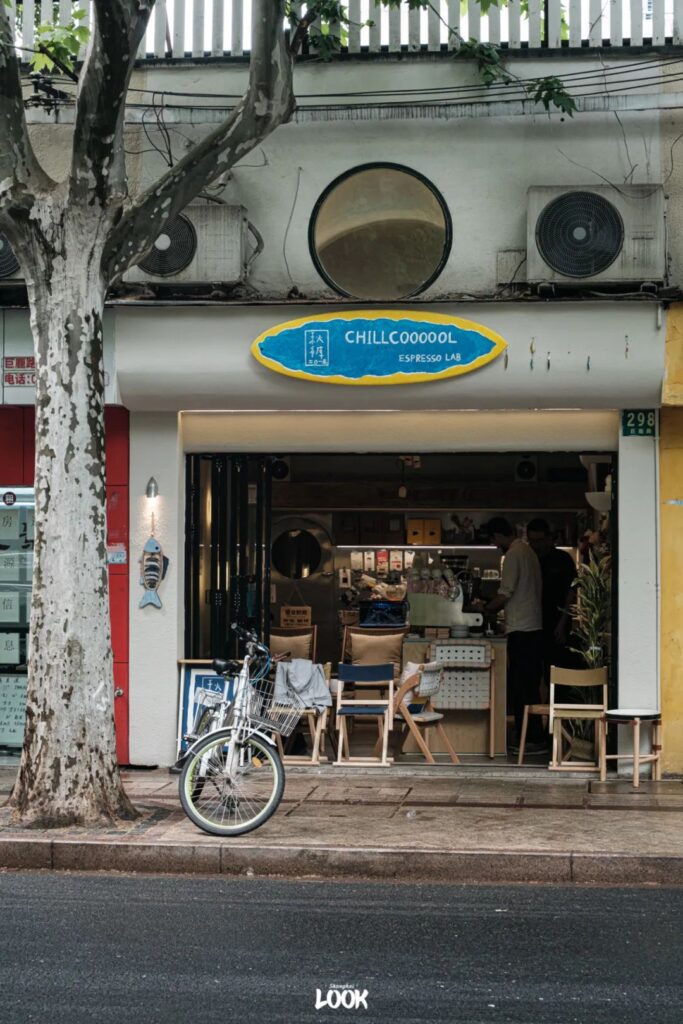If the mountains of Jiangsu and Zhejiang carry the ancient people’s desire for seclusion, as expressed in the phrase “picking chrysanthemums under the eastern fence, leisurely gazing at the southern mountains,” then the misty Wuyi Mountain is steeped in the aura of countless immortals and heroes.
Since the Qin and Han dynasties, Buddhism, Confucianism, and Taoism have all held Wuyi Mountain in high regard. Numerous celestial caves, Taoist temples, Buddhist monasteries, and nunneries are scattered throughout the area. The great Confucian scholar Zhu Xi taught here for nearly half a century, leading to the establishment of many academies and an enduring cultural legacy. Even today, the presence of monks, Taoist priests, and hermits can still be found in the mountains.
The rich cultural heritage is just one aspect of Wuyi Mountain. It is a UNESCO World Heritage Site for both its cultural and natural significance, one of the first national parks in China, the origin of Da Hong Pao tea, and home to stunning landscapes and danxia landforms. It also boasts the most complete, typical, and largest mid-subtropical forest ecosystem at the same latitude on Earth.
The list of Wuyi Mountain’s “titles” is endless. Moreover, Wuyi Mountain’s cuisine is also unique, featuring Wuyi tea meals, Langu smoked goose, Wuyi rice flower fish, lotus seed stewed with egg, and Zixi noodles, each of which is mouthwatering. With the main scenic area currently offering free admission, now is the perfect time to explore the beauty of Wuyi Mountain.
1.The Joy of Landscape
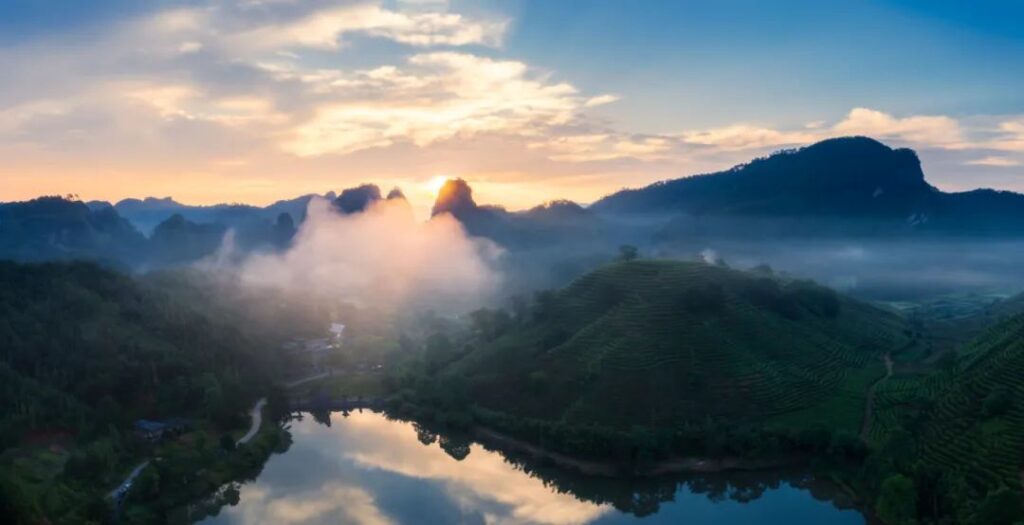
Wuyi Mountain is not a single mountain but a combination of danxia mountain ranges with various shapes and poses. The main scenic area is divided into seven spots: Tianyou Peak, Yunü Peak, Huxiao Rock, Yixian Heaven, Wuyi Palace, Da Hong Pao, and Water Curtain Cave.
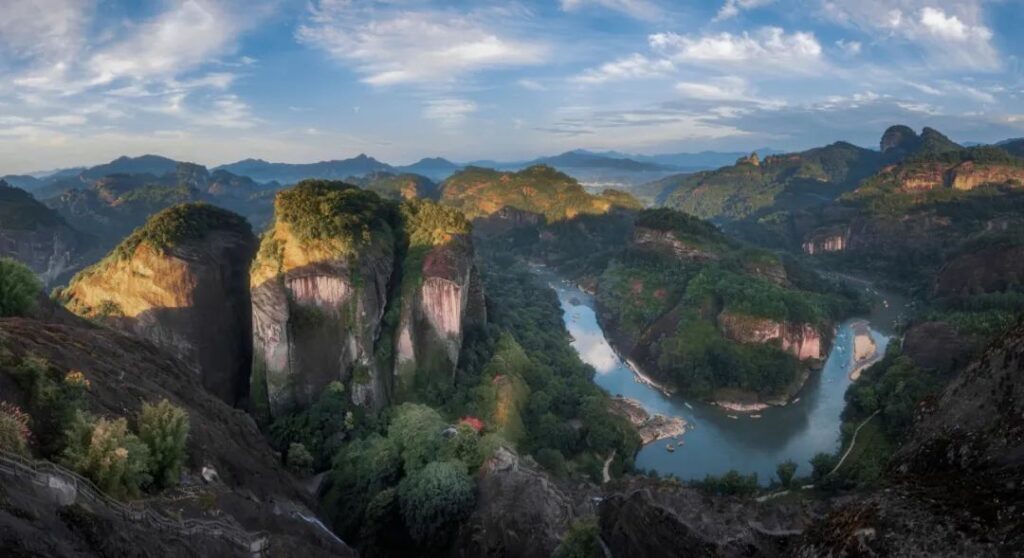
The saying “a mountain is not judged by its height but by its celestial presence” perfectly describes Wuyi Mountain. Even Tianyou Peak, the “first peak of Wuyi,” is only 408 meters tall with just over 800 steps, hardly qualifying as a steep, high mountain. The scenic area doesn’t even have a cable car.
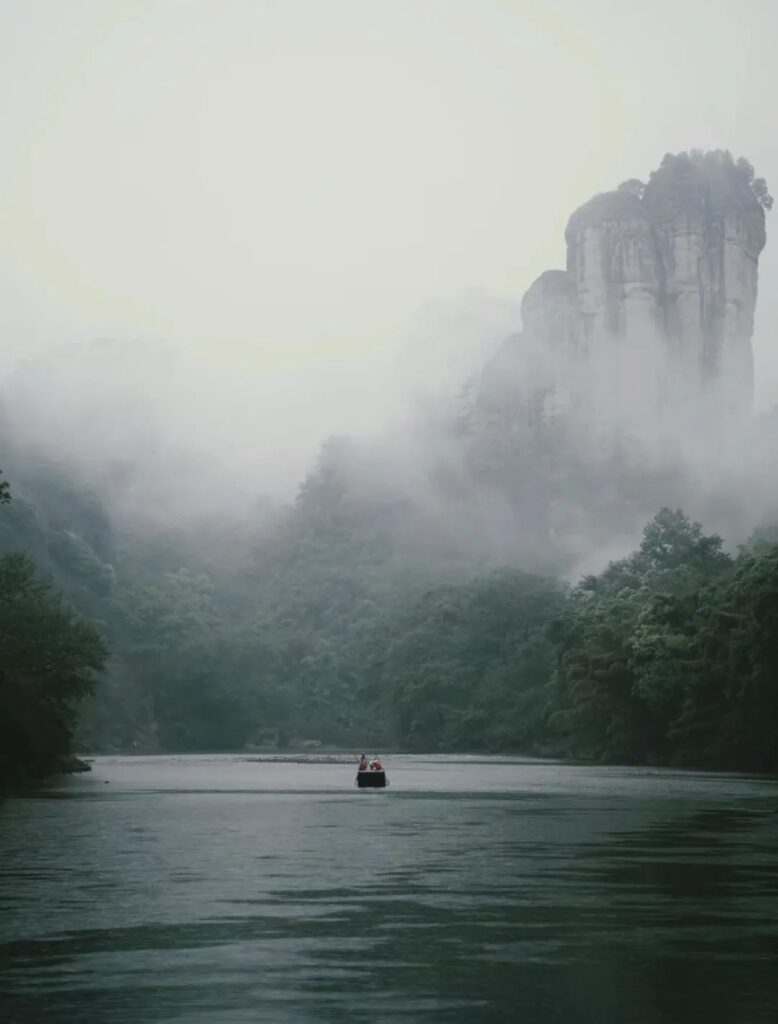
However, the frequent sea of clouds bestows Wuyi Mountain with endless spiritual energy. Climbing to the top of Tianyou Peak, the Wuyi mountain ranges unfold one after another, and the Nine-Bend River meanders through the landscape. When the mist rises, everything becomes hazy, as if touring a heavenly palace, which is the origin of the name “Tianyou Peak.”
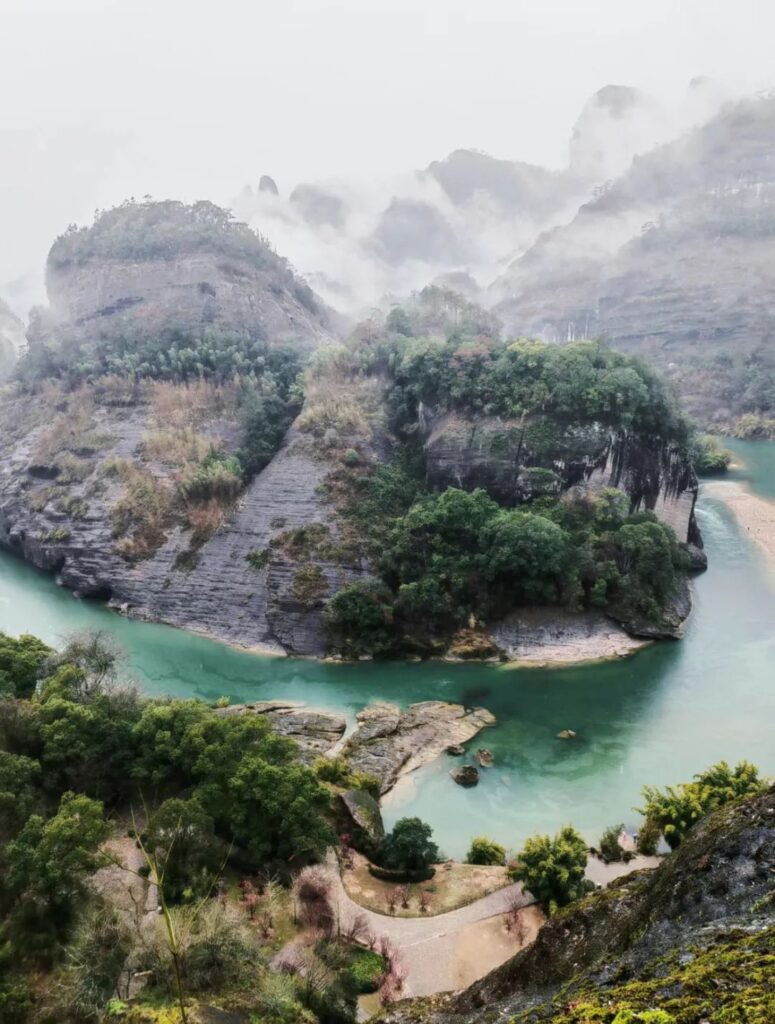

“There are immortals on Wuyi Mountain, and the cold stream below the mountain is winding and clear,” Zhu Xi’s “Nine-Bend Boating Song” has placed the Nine-Bend River on the throne of “China’s most beautiful stream.” In spring, the banks of the Nine-Bend River are adorned with colorful flowers and brimming with vitality, while the autumn scenery of the forests is even more sublime.
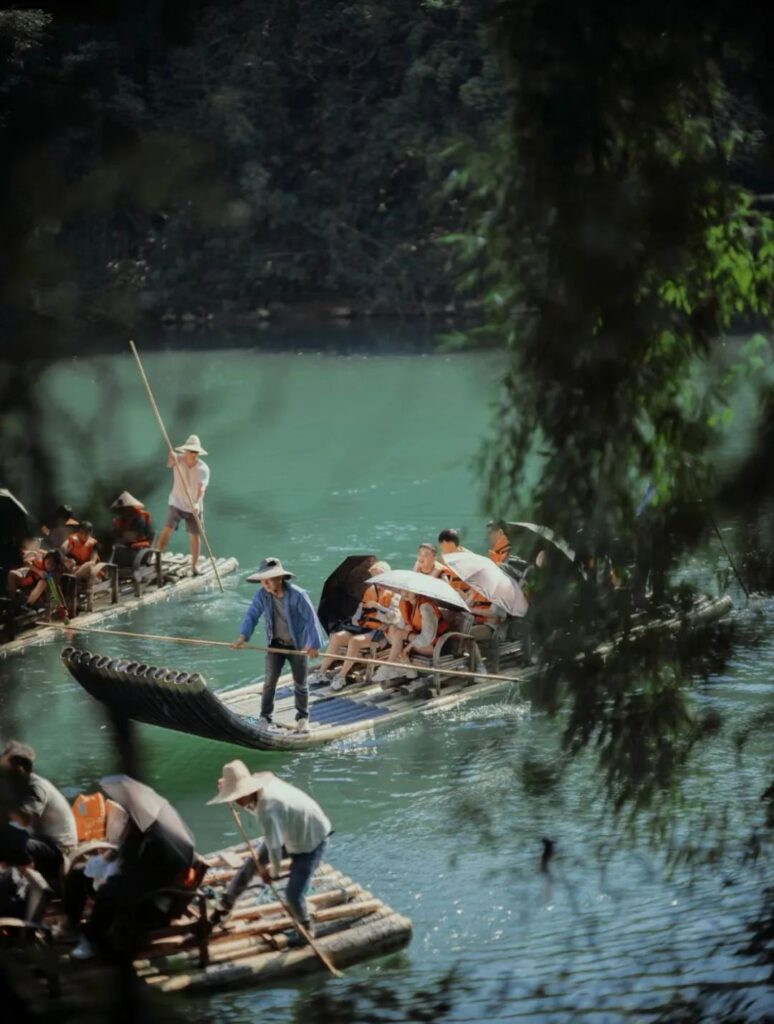
The best way to tour the Nine-Bend River is by taking a bamboo raft. The river’s drop is not very large, and the water is as smooth as a pool, but the nine bends and eighteen turns will never bore you. Drifting downstream for several kilometers, with thousands of peaks and rocks, the scenery changes with the boat’s movement, truly embodying the phrase “boating on the emerald waves, as if touring in a painting.” The more than 500 cliff inscriptions on both banks serve as the ancient people’s message boards, while the hanging boat coffins on the cliffs have been an unsolved mystery for over 3,700 years.
Rafting on the Nine-Bend River is the most popular activity among tourists in Wuyi Mountain. It is recommended to follow the WeChat official account “Wuyi Mountain Tourism” and click on “Tourism Services” → “Tourism Reservation” to book bamboo raft tickets in advance.
2.The Taste of Tea and Zen
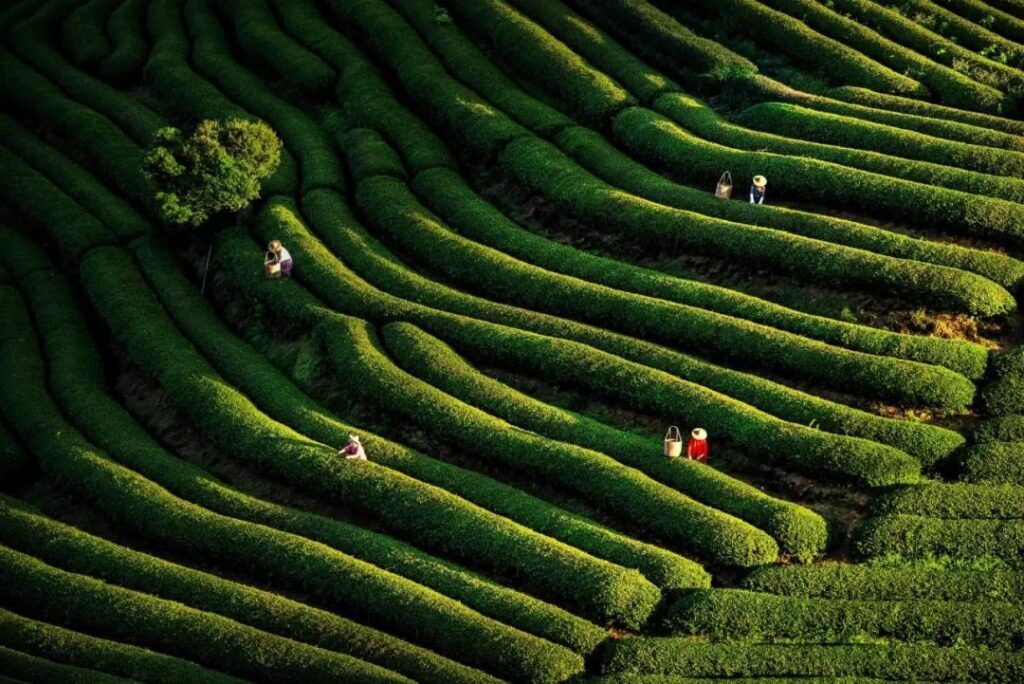
The “Rock Bone Tea Fragrance Wandering Trail” from Water Curtain Cave to Da Hong Pao is the most gentle and comfortable wandering trail in Wuyi Mountain, also known as the “most expensive and romantic” road. The “expensive” here does not refer to the construction cost of the road but to the preciousness of the tea trees.
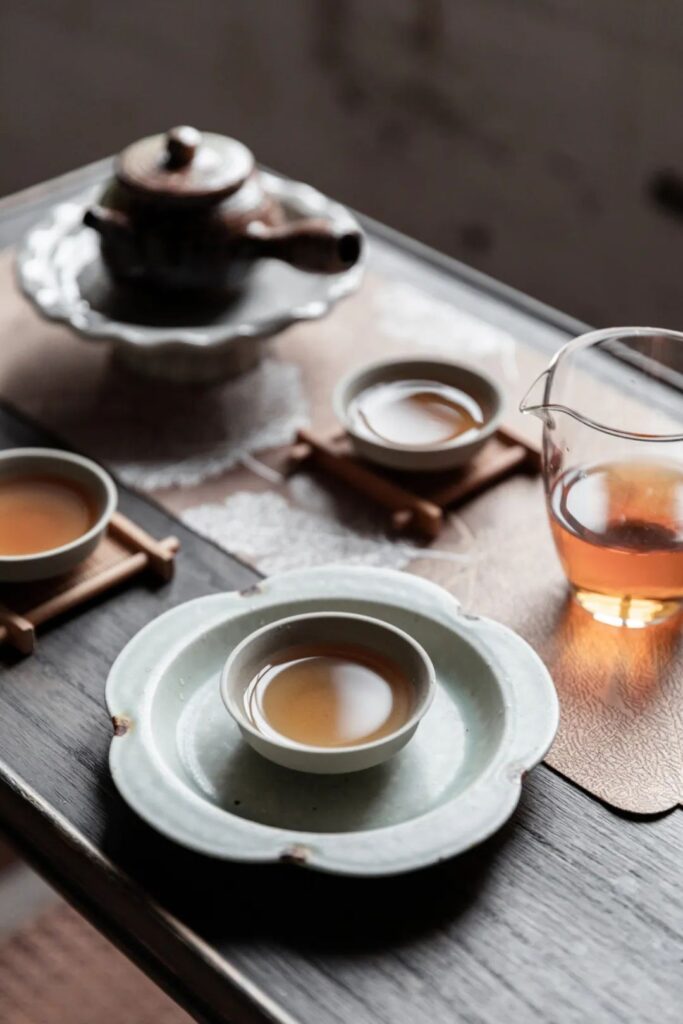
In this short two-hour walking route, you will pass through the core producing areas of Wuyi Rock Tea—Sanjian Liangkeng (Huiyuan Pit, Niulan Pit, Daoshui Pit, Liuxiang Stream, and Wuyuan Stream). The “genuine rock tea” mentioned in ancient times was produced here. The mother trees of Da Hong Pao, Bujiantian, Baijiguan, Shuijingui, and other eight hundred famous tea bushes are the dream varieties for rock tea lovers, within reach and accessible for smelling. It can be said that “everywhere the eyes can see is genuine rock tea, and every step leads to treasures.”
Even if you don’t know much about tea, wandering through the green forests, accompanied by the gurgling stream, experiencing the Buddhist teachings of Huiyuan Temple, and seeing the cliff dwellings on the precipitous Danfeng Cliff, it is still a carefree journey of tranquility.
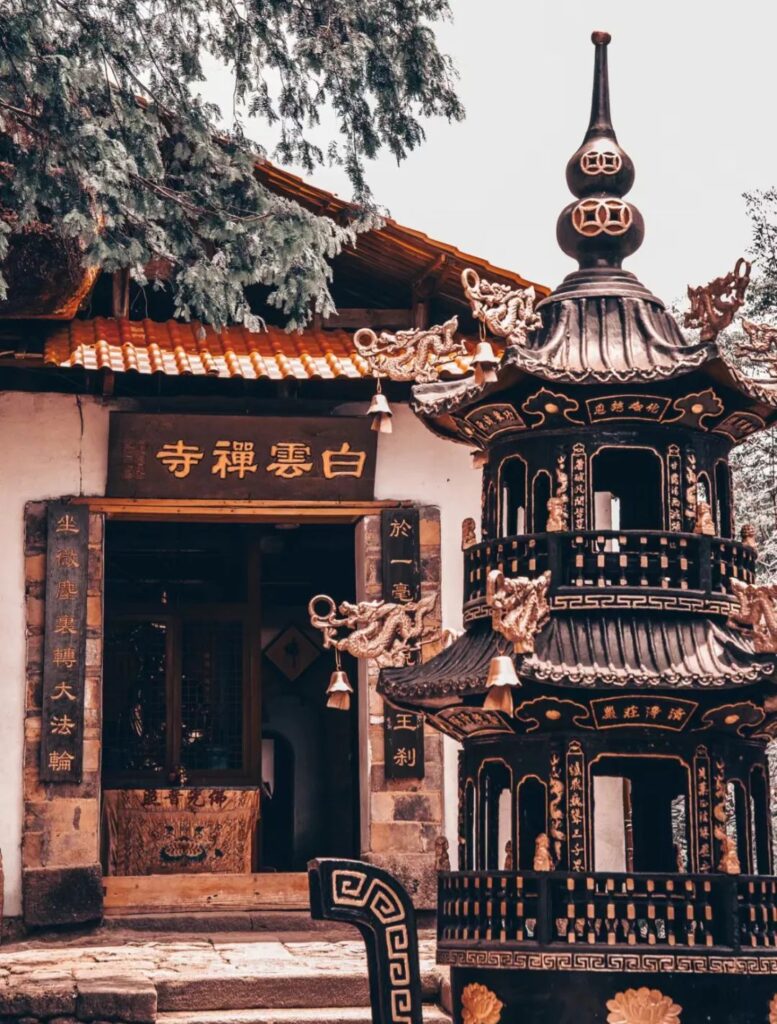
Baiyun Zen Temple, located halfway up the Baiyun Rock Peak, has a history of 1,500 years and is the highest temple in Wuyi Mountain. As it is not included in the scenic area ticket, few people visit, but it is the best place in Wuyi to view the sea of clouds and sunrise. Baiyun Zen Temple is built along a narrow rock crevice halfway up Baiyun Rock, blending seamlessly with the mountains and rivers.
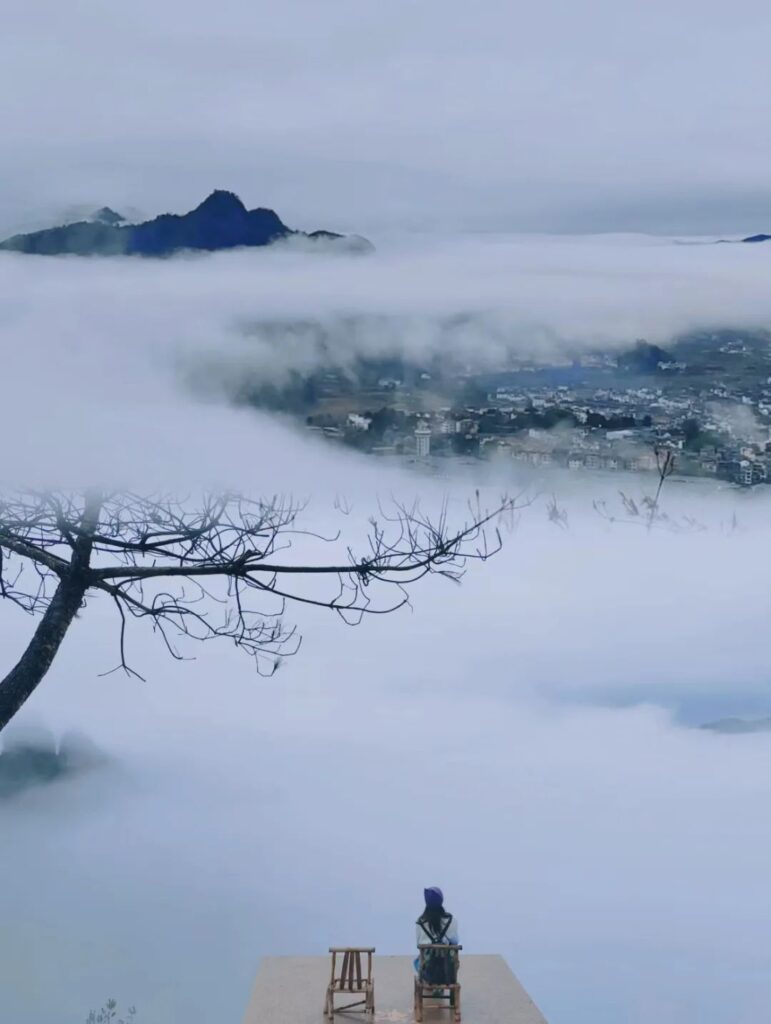
The best position to watch the sunrise is at Yuxian Platform behind the Zen temple, which requires climbing a stretch of exposed mountain path to reach. The path takes about 10 minutes, with a steep cliff just below, so those with a fear of heights should not attempt it. After the thrilling experience comes the surprise. Clouds and mist rise from the cliff edge, like a fairyland. The sun rises from the clouds and mist, illuminating the entire mountain range. After the clouds and mist disperse, the Nine-Bend Stream and terraced fields come into full view.
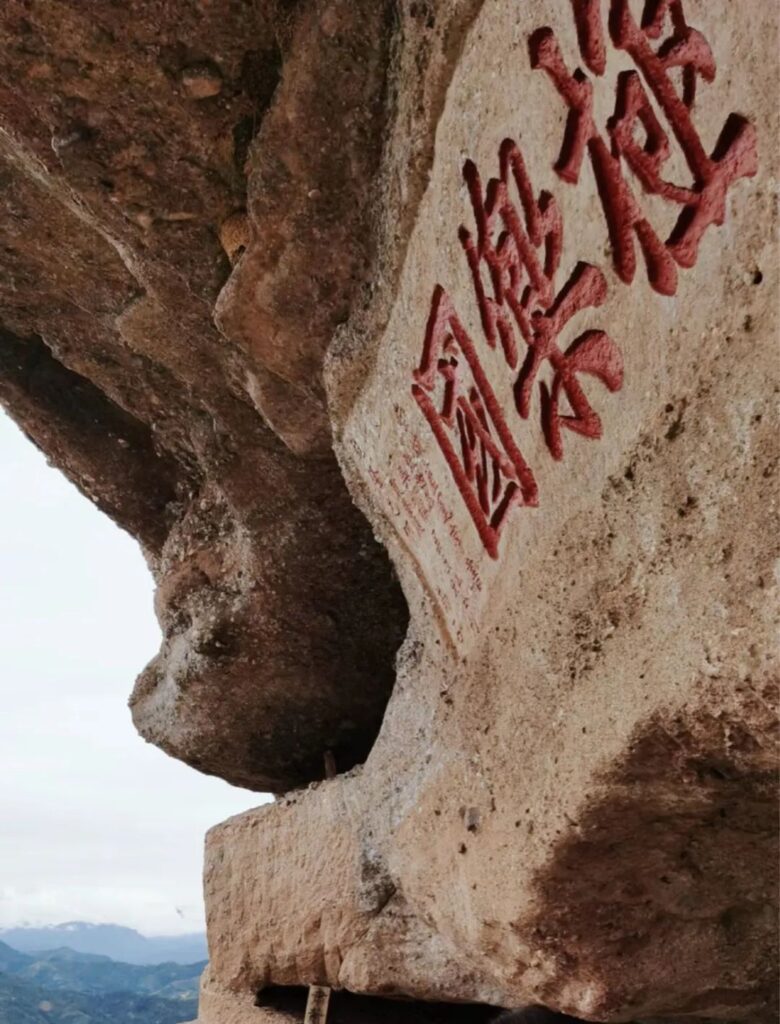
After watching the sunrise, it would be remiss not to have a vegetarian meal. Vegetarian meals are provided around 11 a.m., free of charge, but you can offer a donation for the temple’s incense and oil according to your wishes. Pass through the dining hall and walk along a perilous small path to reach a lesser-known secret realm – the “Paradise Rock Cave,” named after the cliff inscription “Paradise” bestowed by the lay Buddhists to the abbot Peng Ri during the Qianlong period. The rock cave can only accommodate four or five people standing, but the scenery is extraordinary. Pour a pot of tea and invite the beautiful scenery to drink with you, and you will experience the ancient people’s concept of “drinking tea in the clouds.”
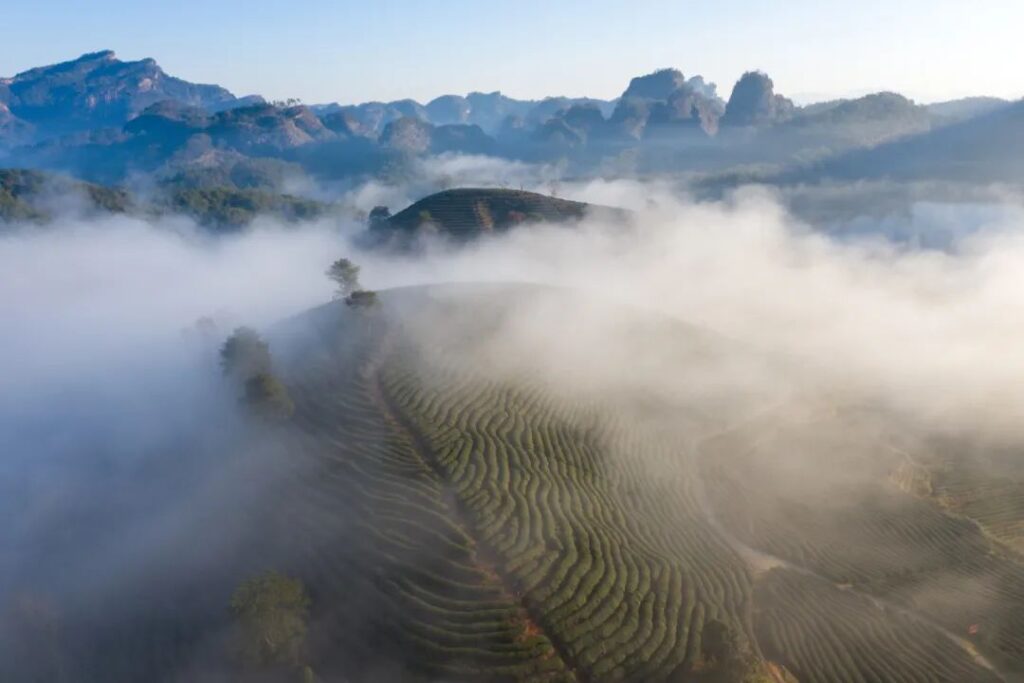
Wuyi Mountain boasts countless “business cards,” but the most dazzling among them is undoubtedly tea. As the birthplace of oolong tea and black tea in the world, Wuyi Mountain tea’s unique “rock bone and floral aroma” makes it a fascinating and distinctive variety.
The “rock bone” of Wuyi Mountain tea comes from the danxia landforms. The rocks are eroded by rainfall and weathering, and the gravel is continuously eroded and scattered year after year, resulting in a soil composition with 25%-30% sand and gravel throughout the mountain. This complex terroir gives Wuyi Mountain tea a variety of original aromas.
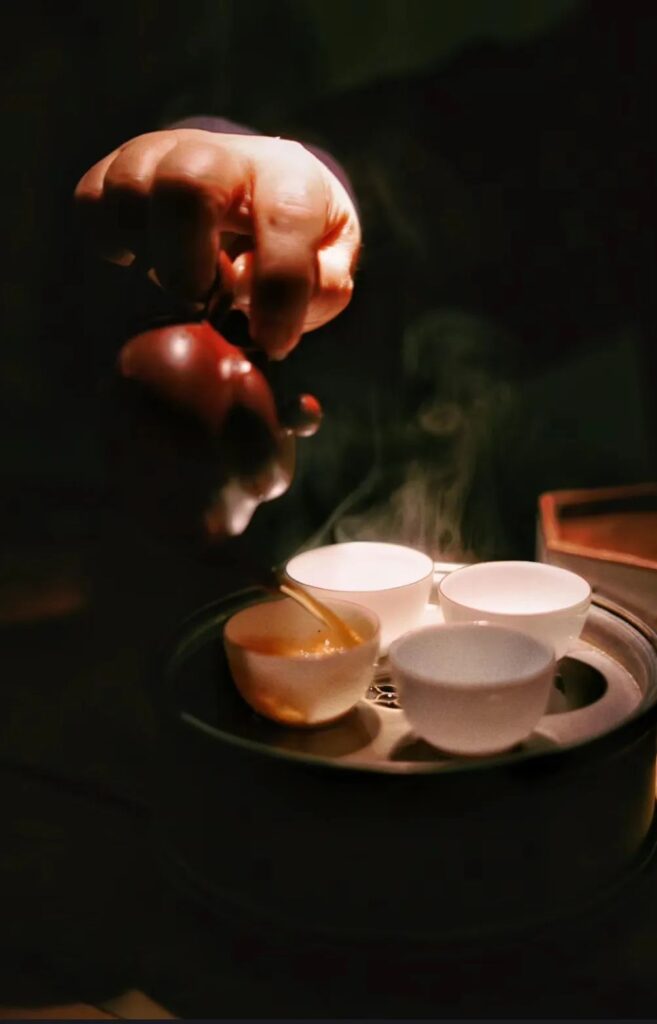
Hundreds of years of tea-making experience have allowed Wuyi Mountain tea to develop a complex and precise mechanism. From shaking, killing green, rolling, initial baking, air-drying, to re-baking, the flavor of rock tea is developed to its fullest potential step by step. In addition to Da Hong Pao, Shui Xian and Rou Gui are also of exceptionally high quality among Wuyi rock teas. Shui Xian has a clear, sweet aroma with a strong scent of orchids, while Rou Gui has a bright color and a rich flavor.
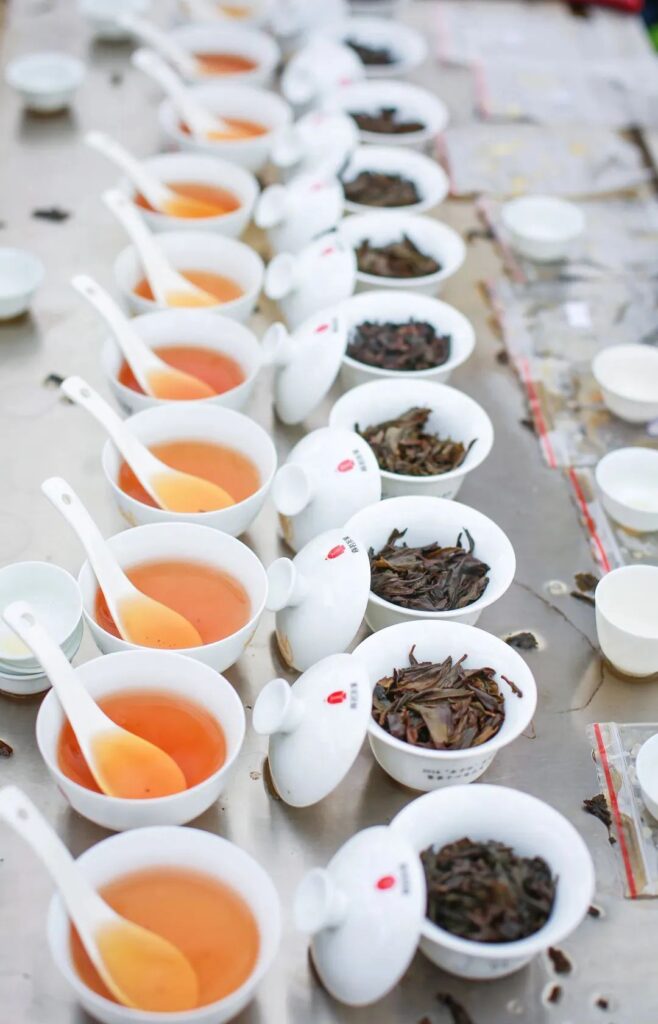
Starting from October, the Wuyi Tea Competition Season begins, with various tea competitions held in towns and tea gardens. Wuyi Mountain tea is best enjoyed in the mountains, so if you’re interested in these events, be sure to go and have a cup.
3.The Charm of Authentic Cuisine
The beautiful landscapes and waters of Wuyi Mountain nurture high-quality ingredients, which, combined with the unparalleled tea, give Wuyi Mountain its unique culinary system. Unlike the light flavors of other cities in Fujian, Wuyi cuisine is characterized by spiciness and tea aroma, with an overall style more similar to that of neighboring Jiangxi Province.
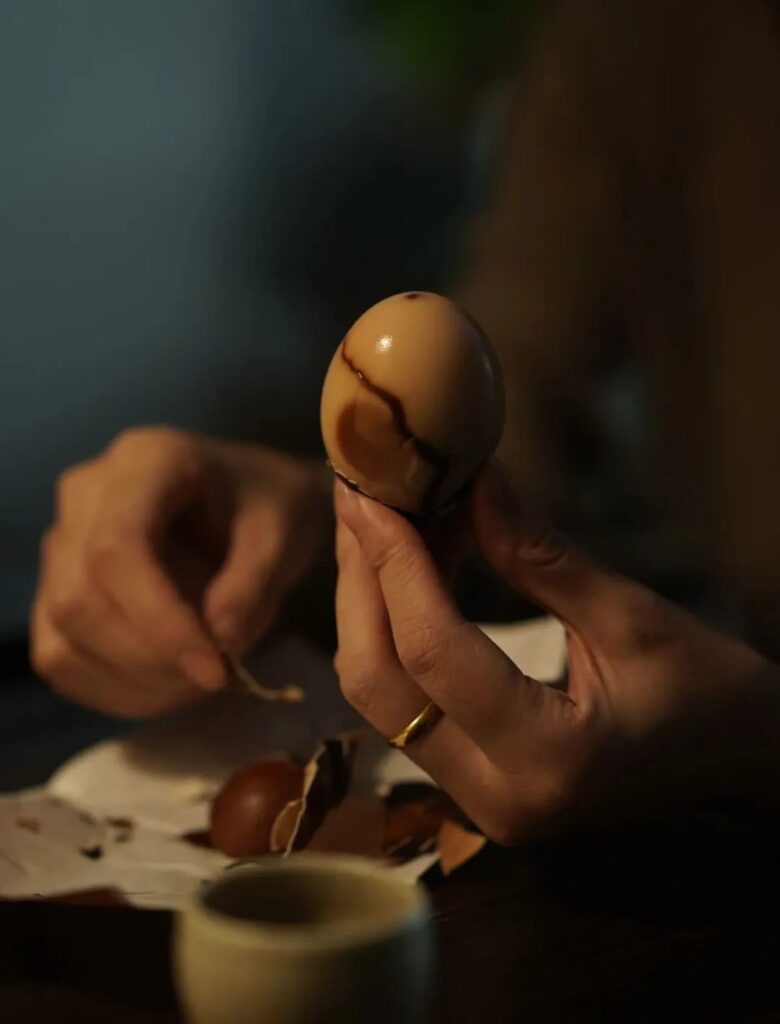
The renowned Wuyi tea cuisine is not a high-end Michelin-starred dish but rather a daily staple in local households. The most popular choice is the Da Hong Pao tea egg, with cracks covering the eggshell like Jun ware porcelain. The unique and strong aroma of Da Hong Pao tea perfectly blends with the egg’s flavor, resulting in a refreshing egg white and soft yolk that is delicious even without soy sauce.
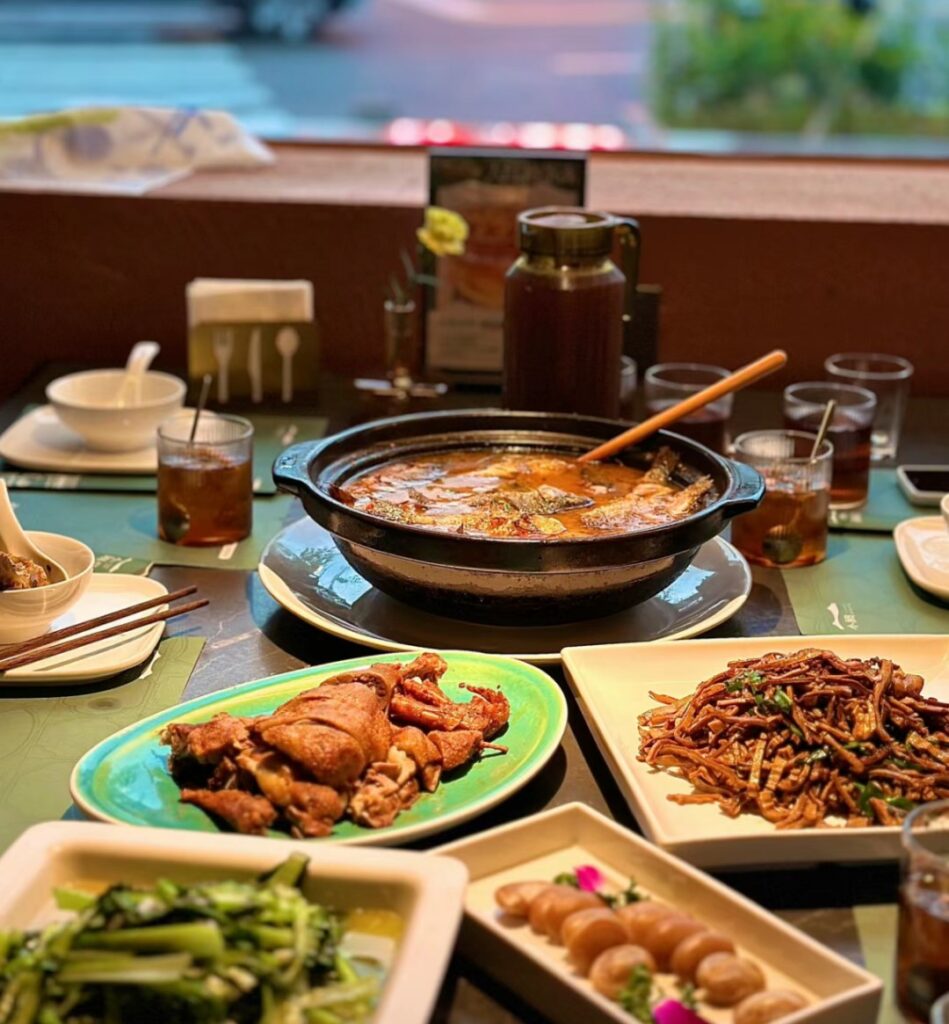
Autumn is the best season for eating fish in Wuyi Mountain. The rice flower fish, which grows in the terraced fields of Wutun Township, can only be harvested after the rice is collected and requires a year-long wait. Although a type of carp, the Wuyi Mountain rice flower fish has an extraordinary origin, said to be the descendant of the “dried carp from high mountains” used by Emperor Wu of Han in his sacrifices to the Wuyi King. Regardless of its origin, the high-altitude terraced fields with significant elevation differences provide the perfect growing environment for the rice flower fish. In addition to its tender meat and delicious taste, the rice flower fish also has 3-5 times more protein than ordinary fish.
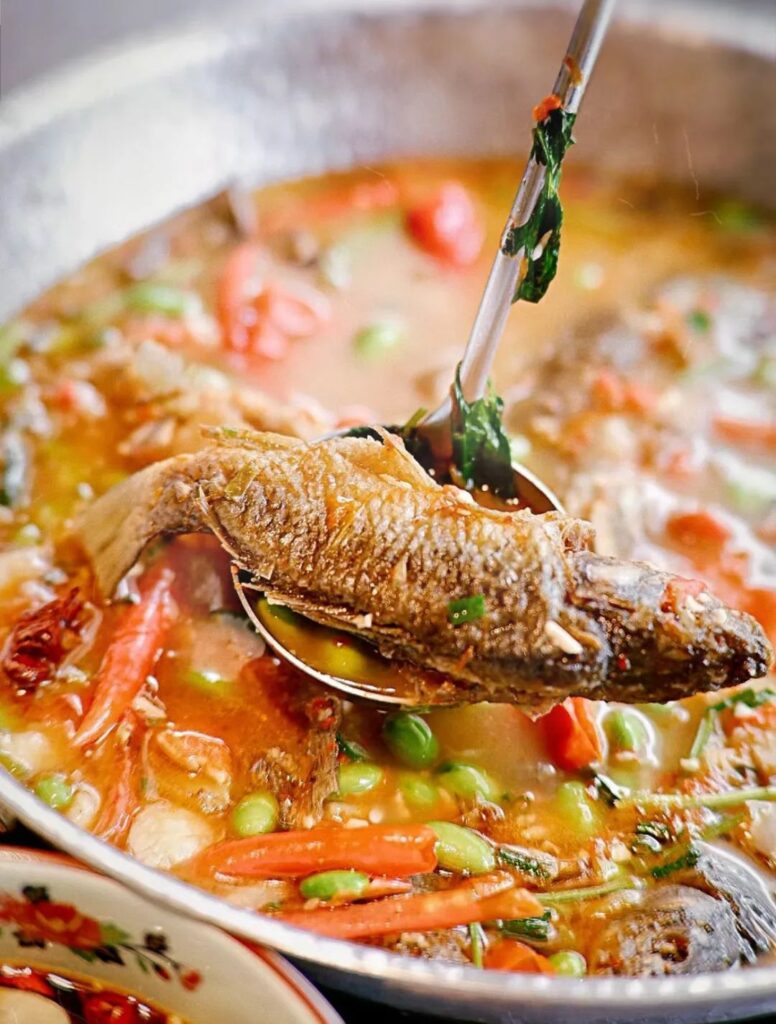
The best way to enjoy rice flower fish is in a soup. Heat the pot until it’s red, add locally produced peanut oil and tea oil, fry the fish on both sides until slightly golden, then pour in spring water. Once the water boils, add vegetables (seasonal taro chunks and green peas are the best), and simmer on low heat for ten minutes. High-end restaurants even sprinkle a handful of Da Hong Pao tea leaves before serving. The fish soup is delicious, the taro is soft and glutinous, the green peas are fresh and sweet, and the tea aroma in the fish meat lingers on the lips and teeth.
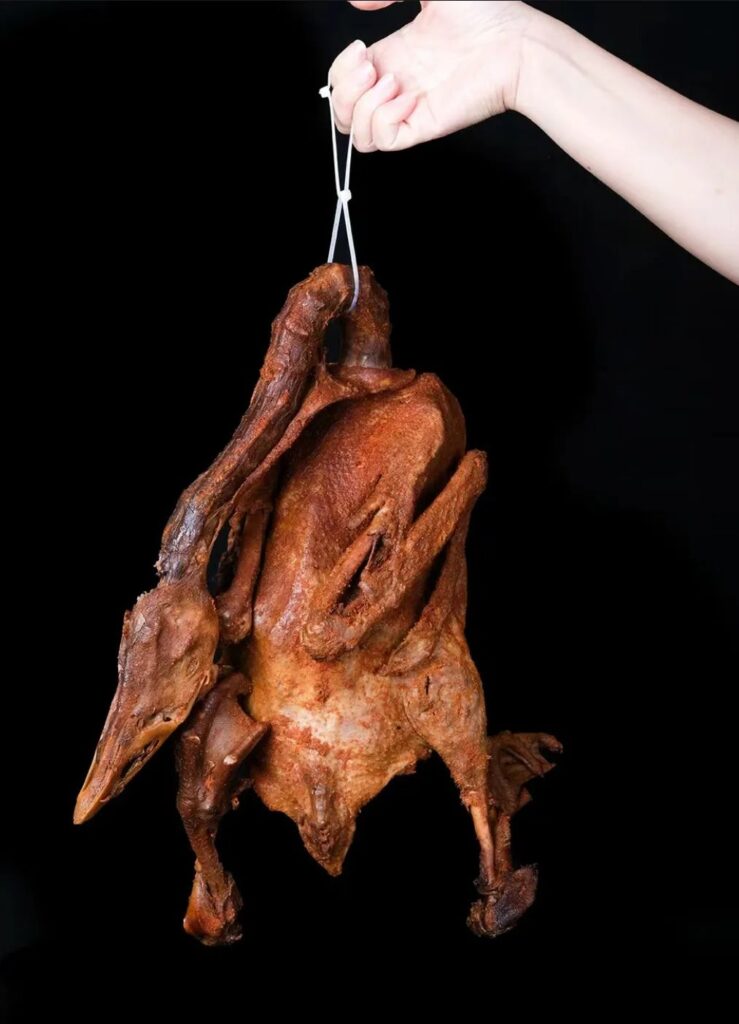
In addition to the rice flower fish, the Langyu smoked goose, also known as “the world’s one flavor,” is a delicacy not to be missed for nourishment in autumn. Langyu Township is located in the northernmost part of Wuyi Mountain, with rolling hills, lush vegetation, and tranquil flowing springs, making it a natural goose farm. The Minbei white geese raised here are a unique small-sized meat goose breed in Wuyi, with a history of hundreds of years.
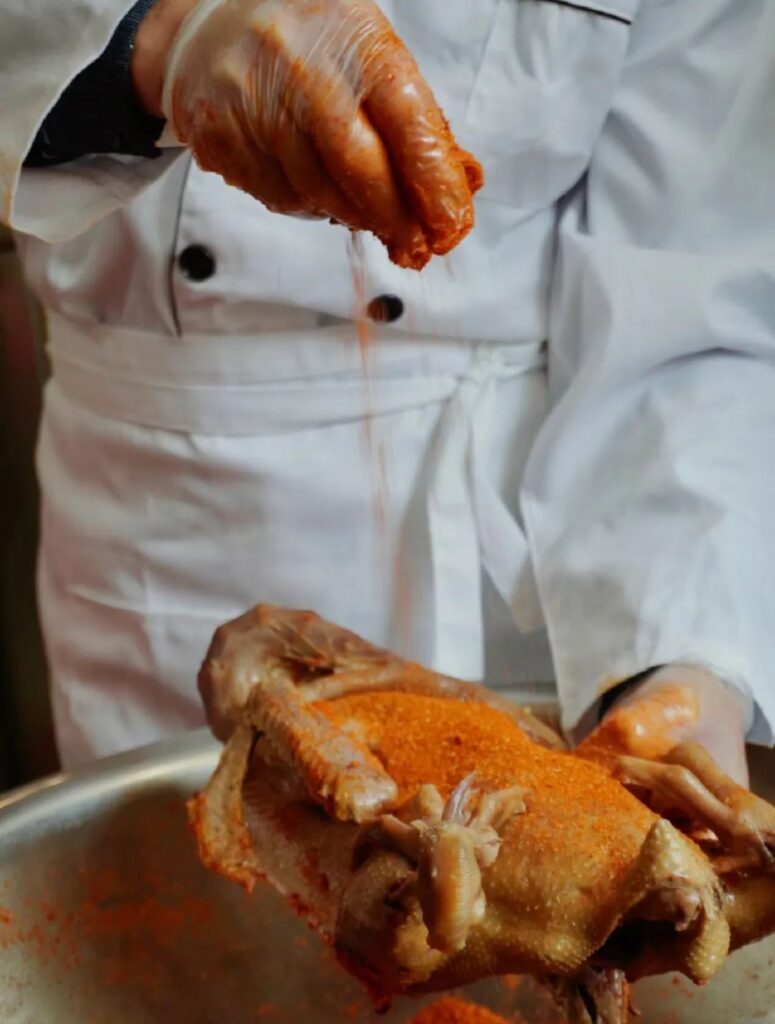
The production method of smoked goose is extremely meticulous. First, 100-day-old free-range white geese are selected and cleaned. They are then pre-cooked with spices until they are 70-80% cooked, drained, and the seasonings are evenly applied to the whole body and repeatedly rubbed in. The white geese are placed on a bamboo rack, and ingredients such as glutinous rice, salt, cassia leaves, and Da Hong Pao tea leaves are added, along with a small amount of goose broth. The geese are then smoked over medium heat, and once the aroma permeates, the locally made winter wine is poured in, creating a golden and translucent smoked goose.
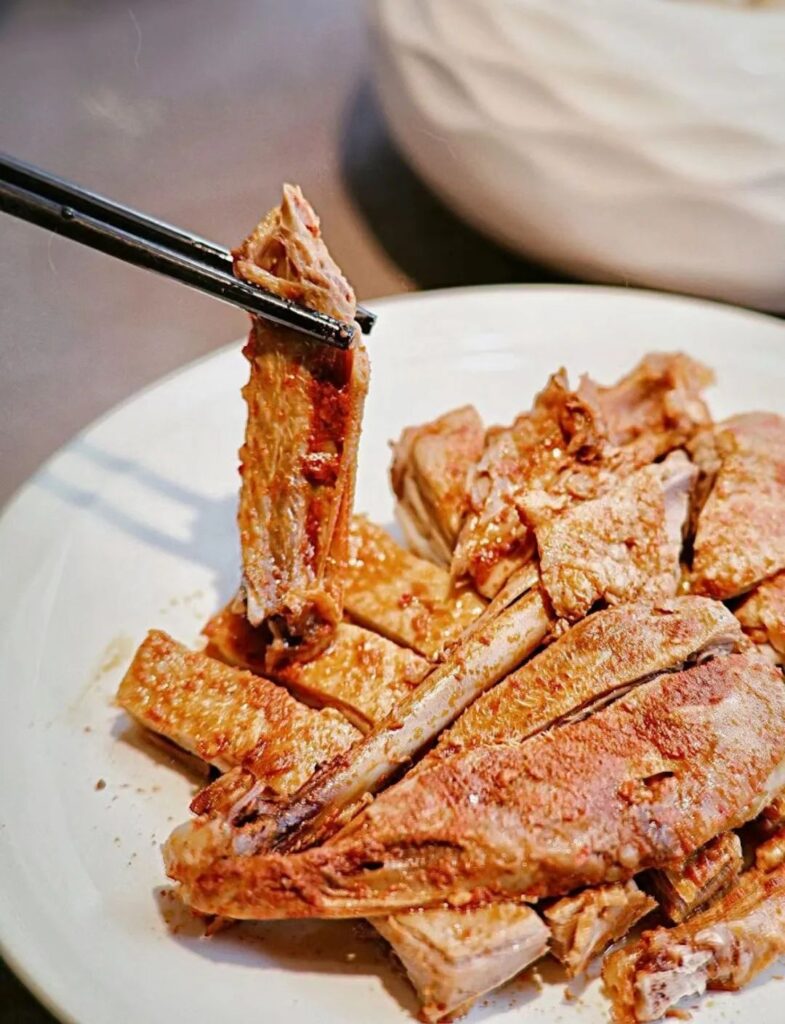
The meat of the smoked goose is firm and plump, yet tender and juicy. The flavors are distinct upon tasting, gradually transitioning from spicy to the aroma of tea, cassia leaves, and glutinous rice, penetrating from the skin to the bones, making it irresistible to indulge in.
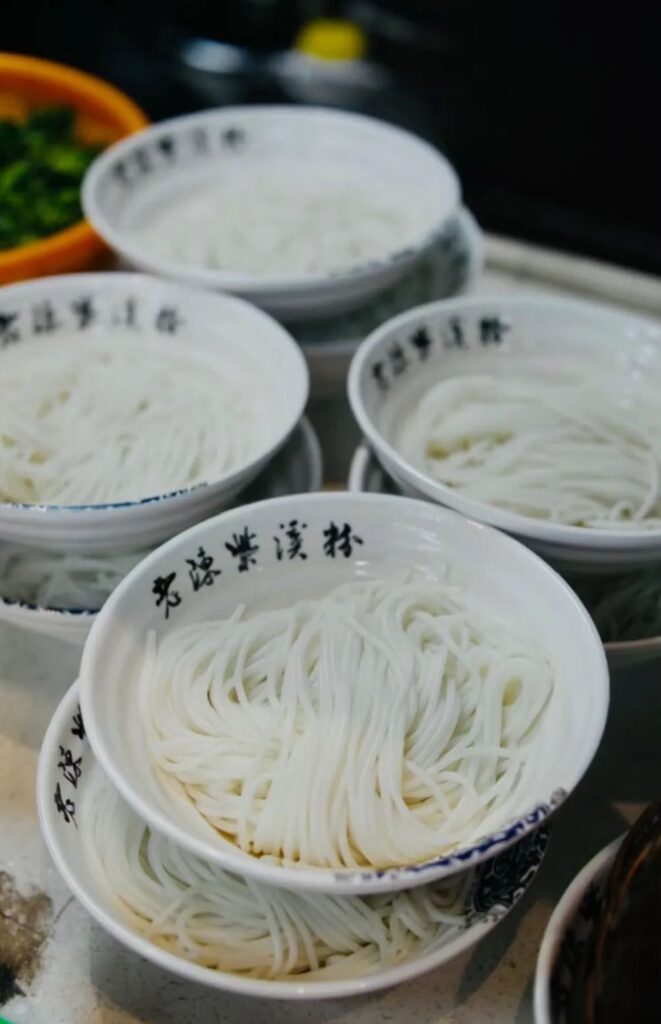
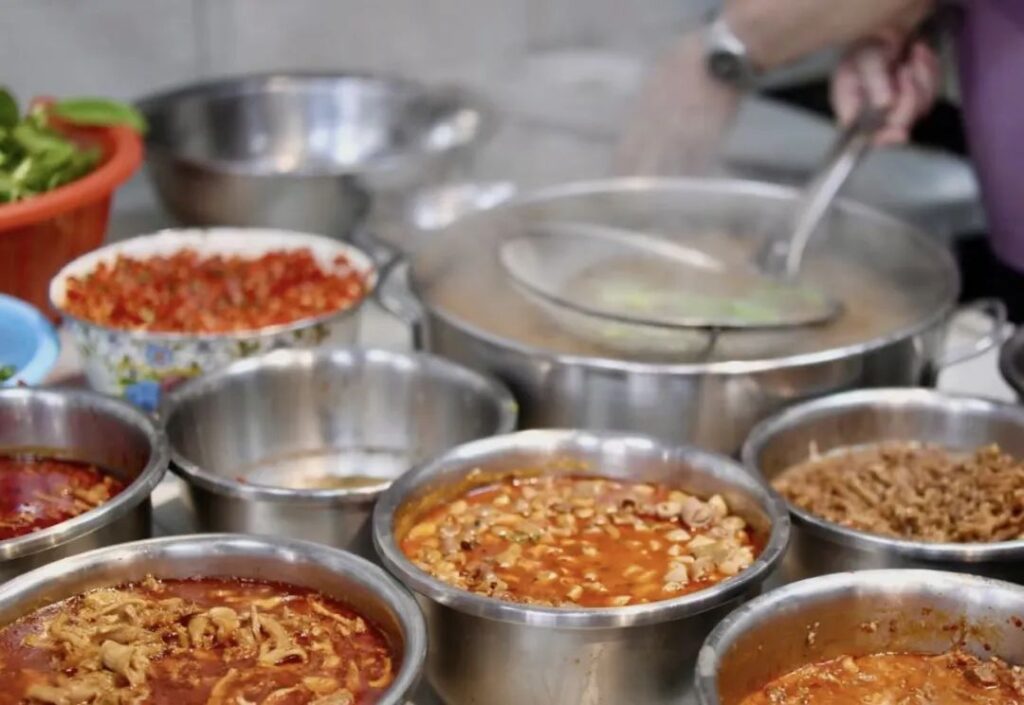
Apart from tea cuisine, the snacks in Wuyi Mountain also combine the strengths of Fujian and Jiangxi provinces, making them unique. Zixi noodle shops, which can be found all over the streets and alleys of Wuyi Mountain, are a flavor that locals cannot give up. The red noodles are neatly arranged, making people’s mouths water. Zixi noodles have a chewy and firm texture, not belonging to the soft and sticky category. The broth base is fresh and sweet, and the rich toppings are its specialty. Small intestines, duck blood, and pork lungs are the most popular choices among local gourmets.
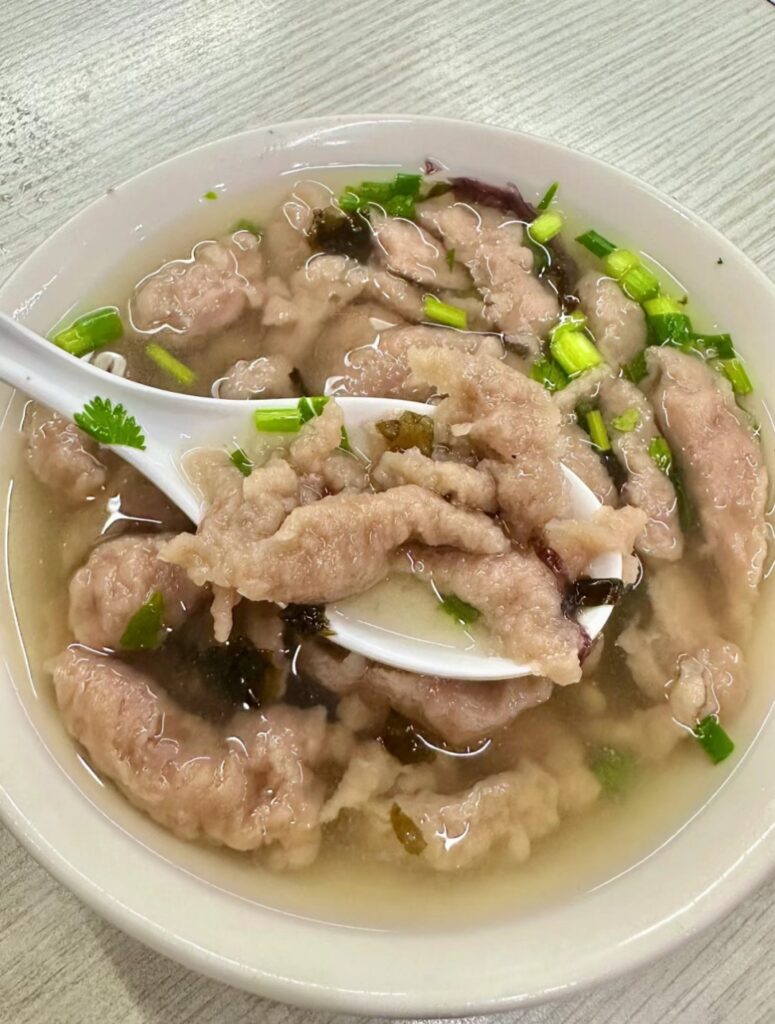
If you ask the people of Wuyi Mountain what they eat for breakfast, most of them will recommend a bowl of lean meat soup that looks plain. Lean meat soup and Fuding meat slices are like twin brothers. Fresh lean meat is minced into a fine paste after removing the fascia and scraped into a spindle shape with a spoon before being scalded in boiling water. The lean meat soup is tender, smooth, and elastic, with a rich broth. Adding a spoonful of chili whets the appetite, and a wonderful day begins from there.
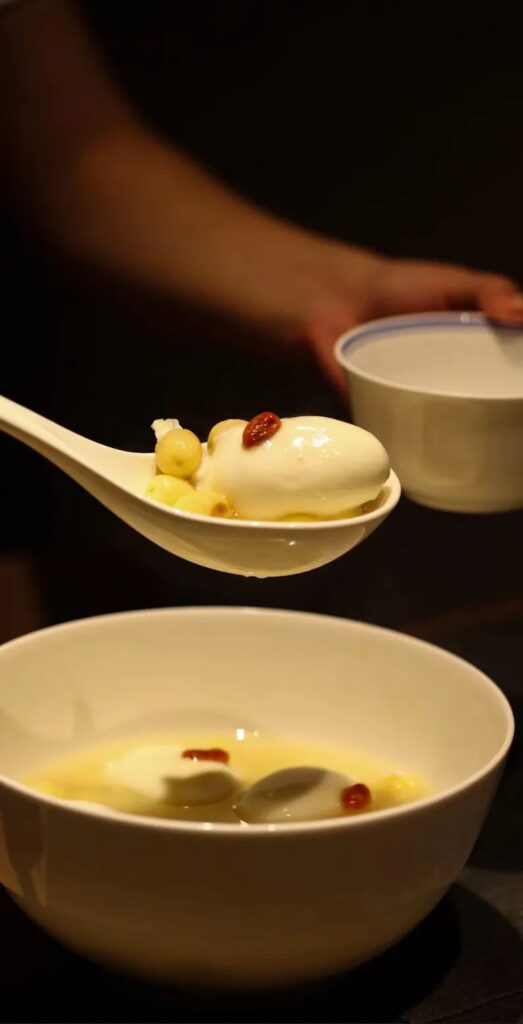
If you’re tired of spicy flavors and want to change it up, the soft and delicious lotus seed stew with eggs is a good choice. It is said that this was a dish made by Zhu Xi to show filial piety to his mother. Lotus seeds are soaked in hot water for two hours, then slowly cooked in a clay pot for another hour and placed on a plate. Sprinkle osmanthus honey on top, then spread beaten eggs over it and steam for about 13 minutes. The lotus seeds are sweet, the eggs are smooth, and the soup is clear, making it suitable for both young and old.
Wuyi Mountain is easily accessible, with Wuyi Mountain Airport only a 7-minute drive from the Wuyi Mountain Scenic Area and a 15-minute drive from Wuyi Mountain City. Currently, round-trip flights to and from Beijing, Xi’an, Xiamen, Guangzhou, Qingdao, Chengdu, Hong Kong, and other cities have been opened.
Wuyi Mountain has two high-speed rail stations, Wuyi Mountain North Station and Nanping Station, both of which are not far from the Wuyi Mountain Scenic Area. Nanping Station is closer to the South Gate, while Wuyi Mountain North Station is closer to the North Gate.
